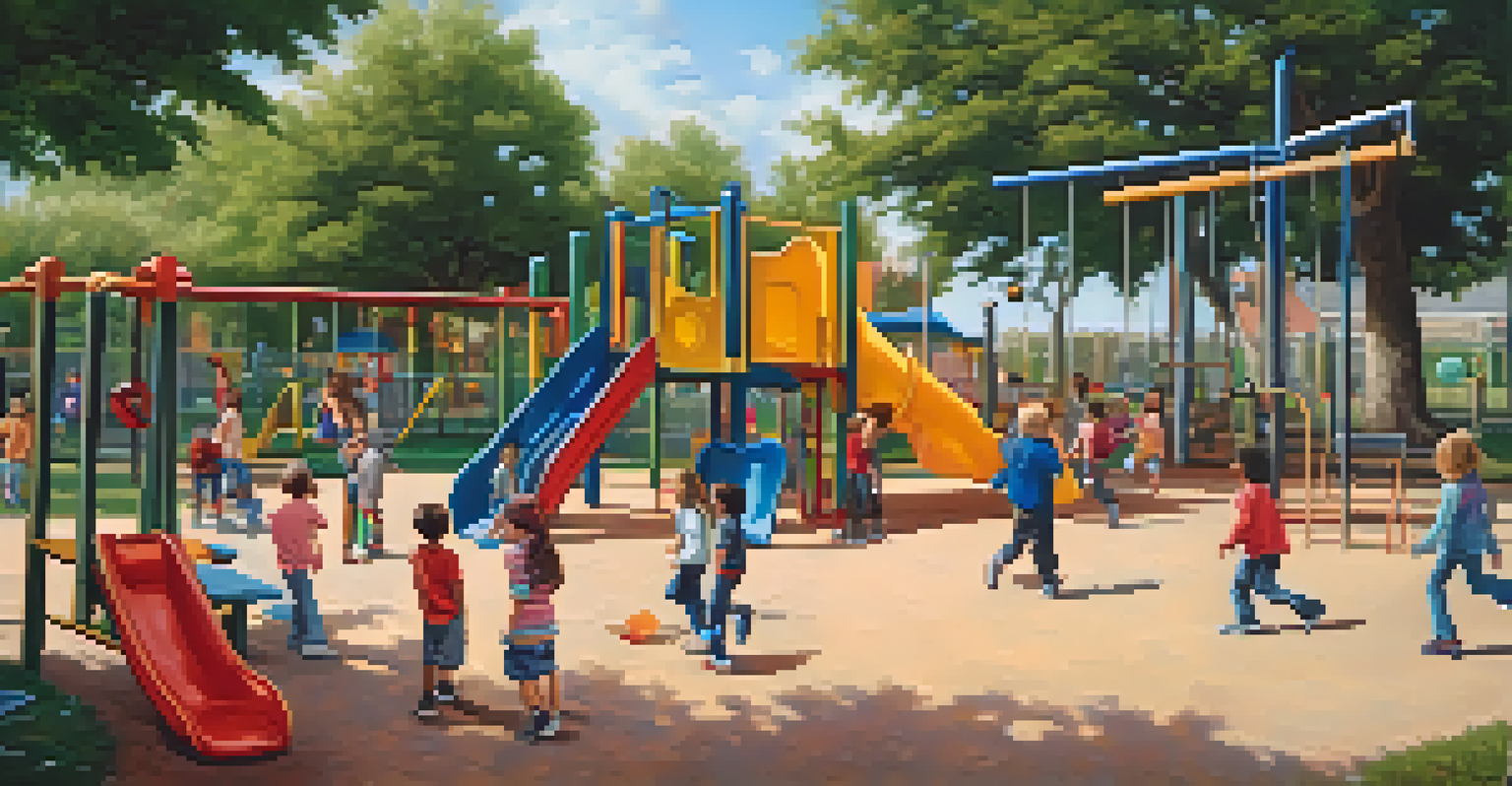The Importance of Setting Healthy Boundaries for Kids

What Are Healthy Boundaries and Why Do They Matter?
Healthy boundaries are the limits we set to protect our personal space, feelings, and needs. For kids, this means understanding what they are comfortable with and learning to express it clearly. Boundaries can range from saying 'no' to unwanted interactions to knowing when to seek help from trusted adults.
Boundaries are a part of self-care. They are healthy, normal, and necessary.
When children learn to establish boundaries, they develop a sense of self-worth and confidence. They become more aware of their feelings and needs, which is crucial for their emotional development. By fostering this awareness, we empower them to navigate social situations with greater ease.
Moreover, setting healthy boundaries teaches kids respect—both for themselves and for others. They learn that everyone has their own limits, which helps cultivate empathy and understanding in their relationships. This foundational skill will serve them well throughout their lives.
Teaching Kids to Recognize Their Own Needs
The first step in setting boundaries is helping kids identify their own needs and feelings. Encourage them to express what makes them comfortable or uncomfortable in various situations. For example, if they're feeling overwhelmed in a crowded place, they should know that it's okay to take a step back.

Using age-appropriate language and scenarios can make this process easier. You might say, 'If you feel upset when your friend takes your toy, it's important to speak up about it.' This not only helps them articulate their feelings but also reinforces that their emotions are valid.
Healthy Boundaries Build Confidence
Teaching kids to recognize and establish their own boundaries fosters self-worth and emotional development.
Practicing this recognition can be done through role-playing games or discussions about feelings. By engaging in these activities, kids will begin to understand the importance of tuning into their emotions, which is the first step toward setting effective boundaries.
The Role of Parents in Boundary Setting
Parents play a crucial role in guiding their children through the boundary-setting process. By modeling healthy boundaries themselves, they provide a live example for kids to follow. This means demonstrating how to say 'no' respectfully or how to assert oneself in uncomfortable situations.
You can't change how people treat you or what they say about you. All you can do is change how you react to it.
Open communication is essential. Parents should create a safe space where children feel comfortable discussing their feelings and concerns. When kids know they can talk to their parents about anything, they're more likely to seek guidance when faced with boundary issues.
Additionally, parents should encourage their children to practice setting boundaries in low-stakes situations, like deciding who they want to play with at the park. This not only builds their confidence but also reinforces the idea that boundaries are normal and necessary.
Encouraging Assertiveness in Children
Assertiveness is the ability to express one's feelings and needs confidently without being aggressive. Teaching kids to be assertive helps them communicate their boundaries effectively. They should feel empowered to speak up when something doesn't feel right.
You can help them practice assertiveness through phrases they can use, like 'I don’t like that,' or 'Please stop.' Role-playing different scenarios can make them more comfortable using these phrases in real life. The more they practice, the more natural it will feel.
Parents Model Boundary Setting
Parents play a key role by demonstrating healthy boundaries and creating a safe space for open communication.
Remember, assertiveness is not about being rude or forceful; it's about standing up for oneself respectfully. By instilling this skill, kids learn that their voices matter and that they have the right to protect their personal space.
Understanding the Impact of Peer Pressure
Peer pressure is a significant factor in children's lives, often pushing them to compromise their boundaries. Teaching children to recognize peer pressure helps them understand that they have the power to say no. This awareness is vital as they navigate friendships and social settings.
Engaging in conversations about peer pressure can help kids identify situations where they might feel pressured. Discussing real-life examples, like being urged to try something they're uncomfortable with, can illustrate the importance of sticking to their boundaries.
By preparing kids to handle peer pressure, we equip them with tools to stand firm in their beliefs and choices. This confidence will not only protect their boundaries but also foster authentic relationships based on mutual respect.
The Importance of Respecting Others' Boundaries
Just as kids need to set their own boundaries, they must also learn to respect the boundaries of others. This mutual respect is crucial for fostering healthy relationships. Teach children that everyone has personal limits and that it's essential to acknowledge them.
You can illustrate this concept by discussing various scenarios, like how a friend might not want to share a toy. By understanding and respecting this boundary, they learn that friendship thrives on understanding and consideration.
Respecting Others' Boundaries Matters
Instilling the importance of respecting others' boundaries helps children develop empathy and strong relationships.
Fostering this mindset early on helps children develop empathy and compassion. As they grow, these qualities will help them build stronger, more respectful relationships with peers and loved ones.
Setting Boundaries in the Digital Age
In today's digital world, setting boundaries extends beyond face-to-face interactions. Children need guidance on how to navigate online spaces while maintaining their boundaries. This includes understanding privacy settings and recognizing when to disengage from negative interactions.
Encouraging kids to think critically about their online presence helps them understand the importance of safeguarding their personal information. Discussing the implications of sharing too much online can empower them to make safer choices.

Additionally, parents should monitor their children's screen time and online interactions, creating opportunities for discussions about boundaries in digital contexts. By addressing this modern challenge, we equip kids with the skills to protect themselves in both online and offline environments.